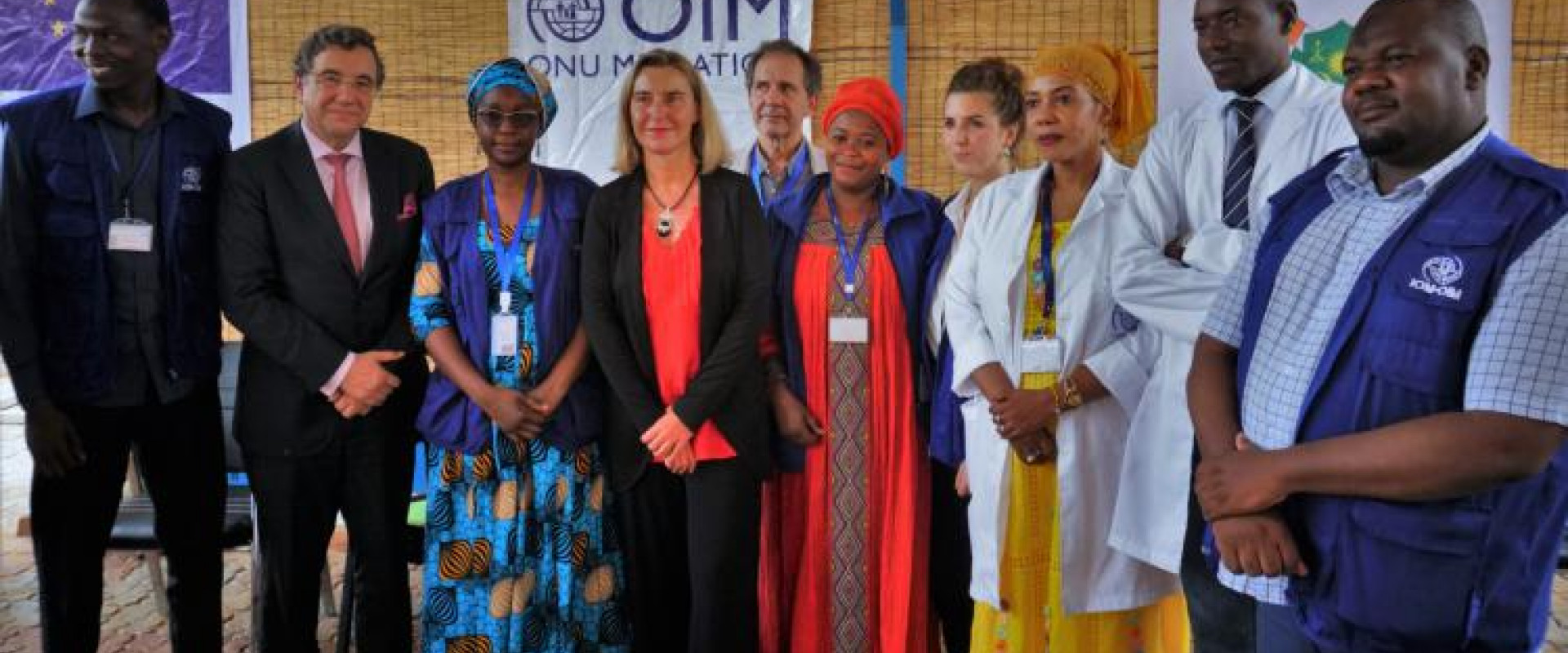Niger: Mogherini meets vulnerable migrants who speak about their stories and vital EU-IOM support
EU High Representative Federica Mogherini met and spoke this week with a number of women migrants in "Bobiel 2", the International Organization for Migration's transit center for women in Niamey, Niger.
With financial support from the European Union, the transit center allows women and girls to receive shelter, food, water, medical and psychological care, protection monitoring as well as educational facilities. The UN Migration Agency further organizes their voluntary return to their region of origin.
Suzi, one of the migrants who shared their stories with Mogherini, decided to leave Cameroon to go to Algeria in the hope for a better job. Mother of two, she invested all her savings into this trip, hoping she would be able to pay the school fees for her children.
Once she arrived in Algeria, she couldn't succeed in finding a job. She spent the next two months unemployed until she got detained. After two weeks, she was on a bus with other migrants on the way to Niger when they had an accident on the road. "I was almost dead by the time IOM found me at the border," Suzi says. Once at the transit center in Arlit, IOM’s medical team assisted her. Now she is recovering at "Bobiel 2".
The EU High Representative stressed the "valuable partnership" with the IOM and other UN agencies during her visit to Niger.
Niger is one of the African countries where the European Union and the UN Migration Agency cooperate closely together to save and protect lives and assist migrants along key migration routes.
Instability in neighboring countries has changed the migration dynamics in Niger over the past years. In 2016 there were more than 333,000 migrants travelling through Niger to reach Libya, according to IOM's flow monitoring points in Niger.
"Since the opening of IOM's first transit center for migrants in Agadez in 2014, IOM's mission in Niger has assisted close to 40,000 migrants from West Africa", said Marcello Goletti, IOM's officer in Charge in Niger, during the High Representative's visit yesterday.
"In the last two years, through the EU-IOM Joint Initiative for Migrant Protection and Reintegration, we were able to significantly expand our support to these vulnerable migrants by facilitating their return and reintegration into their home communities", he added.
